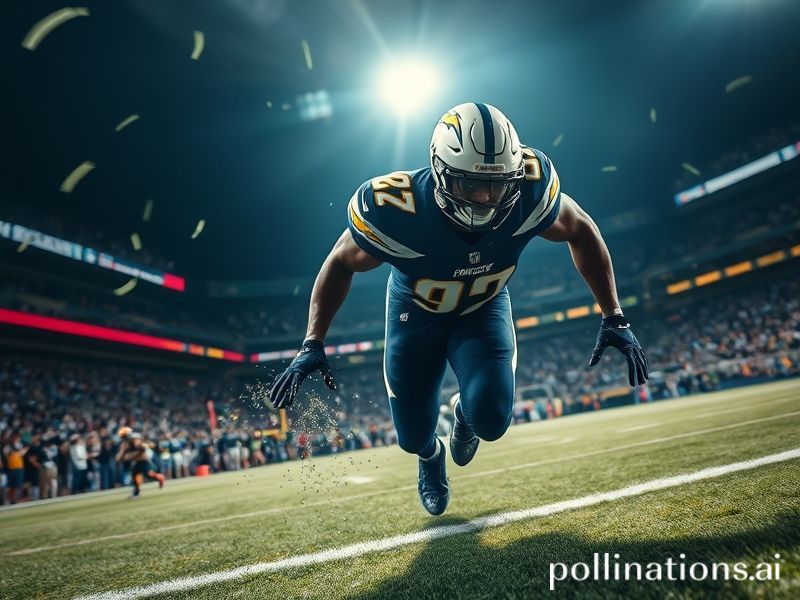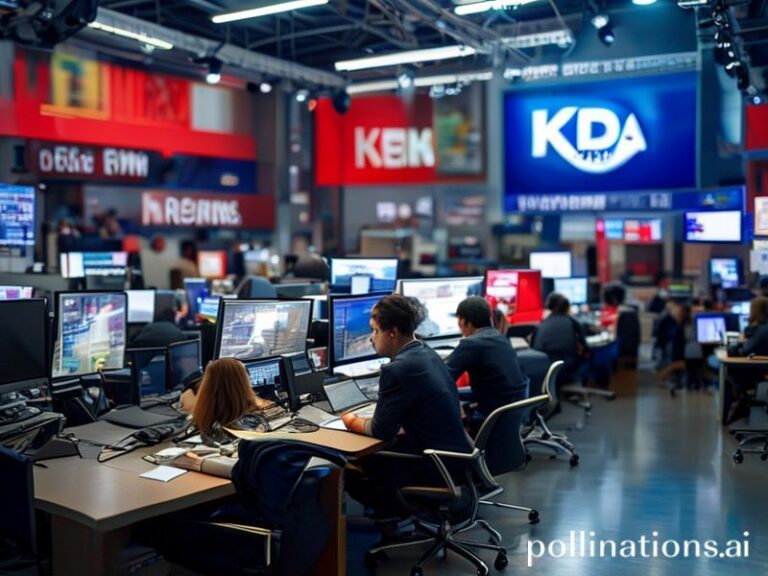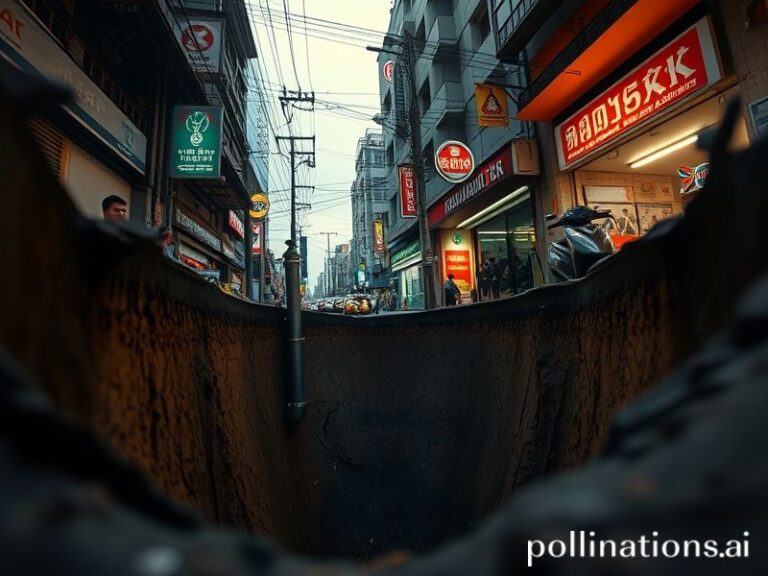Khalil Mack: America’s $141 Million Export of Beautiful Violence Goes Global
**The Global Trade Route Nobody Talked About: Khalil Mack’s Journey from Fort Pierce to the Edge of Civilization**
While the world obsessed over supply chain bottlenecks and cryptocurrency volatility, a different kind of international commerce unfolded on NFL fields across America—one involving a 6’3″, 269-pound outside linebacker who treats quarterbacks like fragile exports that need immediate demolition. Khalil Mack’s recent performances for the Los Angeles Chargers represent something far more significant than mere athletic excellence: they’re a meditation on American excess exported globally, wrapped in shoulder pads and monetized violence.
The international community—when not busy watching democracy crumble in real-time or calculating how many degrees Celsius the planet will warm before their grandchildren need gills—has begun noticing this peculiar American tradition of paying gladiators $141 million to chase an oblong ball. From Berlin to Bangalore, viewers tune into NFL Game Pass, witnessing Mack transform grown men into human origami with the casual efficiency of a Swiss bank manager processing your disappointing life savings.
What makes Mack particularly fascinating to the global audience isn’t just his ability to sack quarterbacks—it’s how perfectly he embodies American capitalism’s beautiful absurdity. Here stands a man from Fort Pierce, Florida, a town where the median household income hovers around $30,000, now earning roughly $8,000 per snap. Somewhere in a Moldovan village, a farmer making $200 monthly watches Mack collapse pocket protection with the same detached wonder he might observe a Dubai hotel featuring gold-plated iPads for lobby fish.
The geopolitical implications are deliciously ironic. While America exports democracy with mixed reviews, its football exports prove far more popular. The NFL now stages games in London, Mexico City, and soon Munich, where German fans—who’ve spent decades perfecting engineering precision—watch Mack’s controlled chaos with anthropological fascination. It’s efficiency, but make it violent poetry.
Mack’s dominance arrives at a moment when traditional power structures face unprecedented questioning. As billionaires race to space stations the size of studio apartments and politicians debate whether climate change requires actual action or just thoughts and prayers, Mack provides something refreshingly honest: pure, unadulterated destruction without pretense of nobility. He doesn’t pretend to save the world—he just destroys plays with the same enthusiasm billionaires display when avoiding taxes.
The international business community has taken notice. European soccer clubs, those bastions of fiscal responsibility where players earn more than small nations’ GDPs, now employ performance analysts who study Mack’s technique. Chinese investors, having already purchased half of Manhattan, reportedly examine NFL defensive schemes for strategic insights—because apparently, understanding how to sack Tom Brady provides some metaphorical framework for conquering global markets.
But perhaps Mack’s true international significance lies in his universality. Every culture understands the narrative: an individual overcoming systematic obstacles through exceptional talent and terrifying force. From Mumbai slums to São Paulo favelas, kids watching YouTube highlights see someone who transformed physical gifts into generational wealth without launching a cryptocurrency or becoming an Instagram influencer—a refreshing anomaly in our age of digital snake oil salesmen.
As climate change accelerates and political systems resemble reality television, Mack’s weekly destruction provides something increasingly rare: genuine authenticity. When he strip-sacks a quarterback, there’s no algorithmic manipulation, no corporate greenwashing, no political doublespeak—just pure, beautiful violence that makes sense in a world that increasingly doesn’t.
In the end, Khalil Mack represents America’s most successful export: the ability to turn anything—even defensive football—into must-see entertainment that momentarily distracts from civilization’s slow-motion collapse. And honestly? That’s worth every penny of that $141 million.







